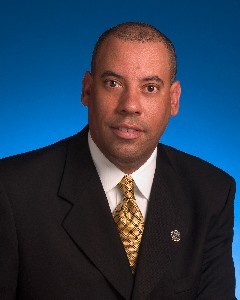Where matters of law are concerned, it is obviously useful to have a consensus on what this or that law or legal regulation means. We say this at a time when, at the national level of government, we see diametrically opposite approaches to matters of standard legal procedure.
Take the word “subpoena,” derived from Latin roots meaning “under penalty,” as in “under penalty of law.” If you and I receive a subpoena to appear in court, we had best have our buttocks down there on a bench or we’ll likely end up sitting on a concrete slab in a jail cell. The word — and the authority behind it — has historically been regarded that way in Washington, as well. When President Nixon was suspected of running afoul of the law, several important members of his administration received subpoenas to appear before a specially appointed congressional investigating committee. They showed up. We still remember the names: Haldeman, Ehrlichman, Mitchell, Dean, and many more. Nixon himself was never asked to testify. He resigned before the then-ongoing impeachment process could compel him to do so.
One of his successors, President Bill Clinton, did testify in his own impeachment matter, albeit voluntarily. Had he not — had he declared himself inviolable to the investigatory process — he would likely have been not only impeached (as he was), but convicted by the Senate.
Fade to today, when a president suspected of criminal behavior, along with every member of his administration, are total scofflaws to the legal process, treating legitimate congressional subpoenas as (in President Trump’s words) “cookies,” to be taken or rejected at one’s pleasure.

Slatery
It was in the shadow of such shameless contempt that the chief legal officer of the state of Tennessee, Attorney General Herbert Slatery, came to Memphis this week to address the Rotary Club, and though Slatery never addressed the national impeachment crisis, he clearly made a point of underscoring the sanctity of the legal process that is being so flagrantly violated in Washington.
Slatery said enforcing the law is not a matter of right vs. left, but of right vs. wrong. He discussed several ongoing legal cases before the state — Mississippi’s suit against Memphis and the state of Tennessee regarding the water aquifer that the Magnolia State claims for itself; the opioid crisis, in which several overlapping jurisdictions have a stake; and several pending capital cases.
With regard to the latter matter, Slatery said that the state constitution and legal precedent mandate that his office “shall” set dates to carry out the sentence of execution, not that it has free will in the matter.
Clearly, opinions differ on the viability and morality of capital punishment, and, just as clearly, the issue is always going to be thoroughly litigated. But, whatever the outcome, the attorney general’s opinion is that he has no option but to follow the law. And what’s true in a matter of life and death surely applies as well to the survival of a presidency.
